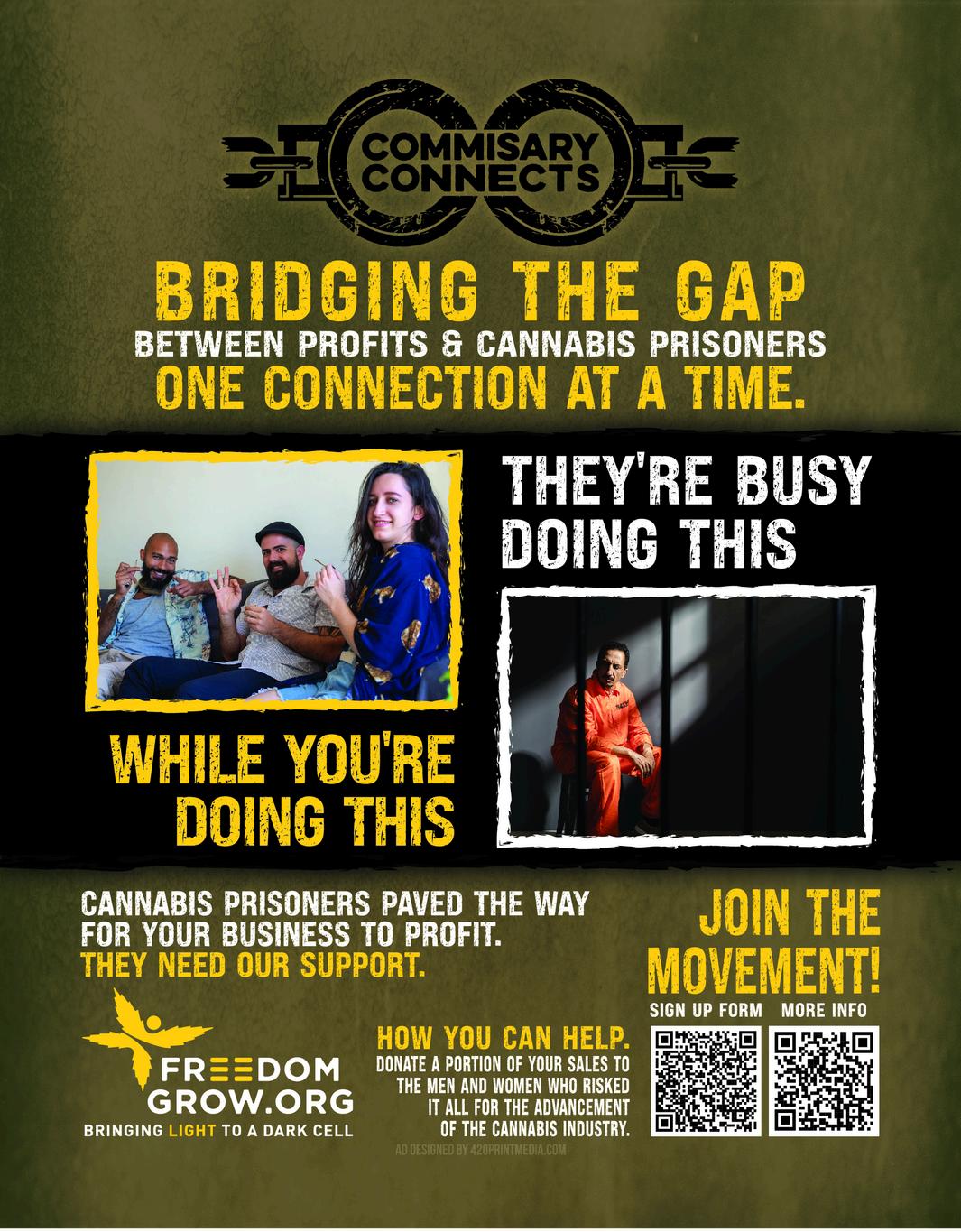


































Women’s History Month is a celebration of the strength, resilience, and brilliance that women have woven into the fabric of history. It is a month that refuses to let their contributions remain unseen or unheard. Every March, we pause and honor the trailblazers; those who defied the constraints of their time and those whose names remain whispered in the shadows From the suffragettes who demanded a voice to the scientists, writers, activists, and leaders who changed the world, this month serves as a reminder that history is not written by one gender, nor one perspective, but by the collective experience of all.
Yet, Women’s History Month is not only a commemoration of what has been accomplished but a call to action for what remains. It urges us to unearth the forgotten stories, to amplify those still silenced, and to ensure that future generations see women not as afterthoughts, but as central figures in the shaping of society. It is a reminder that history is always in motion, and every woman, in her quiet strength or bold defiance, continues to write her own chapter. This month is a tribute to that ongoing narrative; a celebration, a reckoning, and a hope.
dustin hoxworth




P8: Marijuana and the Next Four Years
By Bethany Niebauer
P12: the cannabis founders club: jamie pearson
P20: CannaHumans: Carly Kinderman
P22: The faces of cannabis: featuring By Derrall Peach
P24: From Hidden Gem to Major Player: Unpacking the Texas Hemp Summit by kenya alexander
P30: creator spotlight: Jessica smith
P32: GLazed

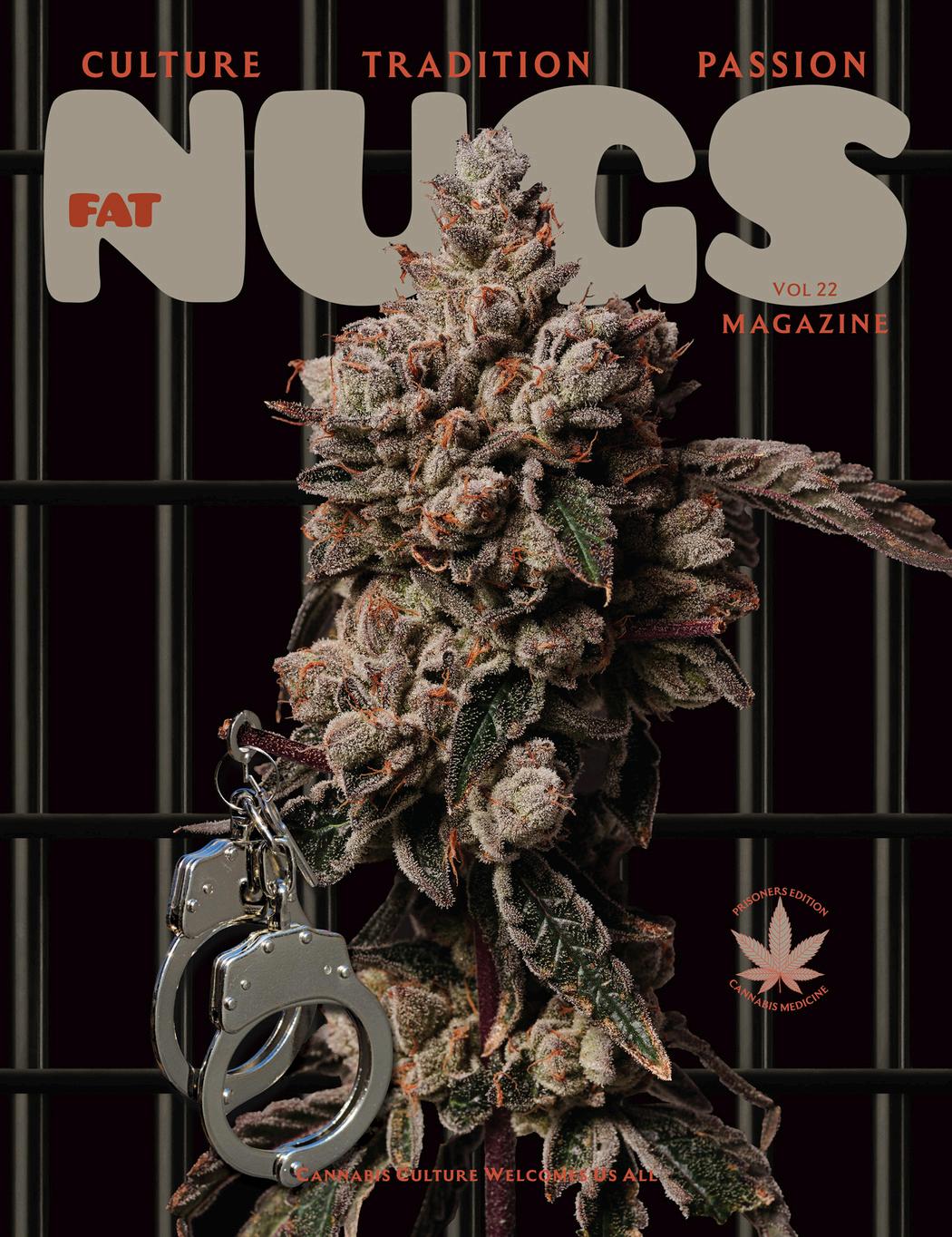



March shines bright, a time to see, The strength and grace of history. Women who dared and broke the mold, Their stories brave, their hearts of gold.
From every age, across all lands, Their courage sparked with steady hands. We honor them, both bold and true, This month, their legacy shines through.
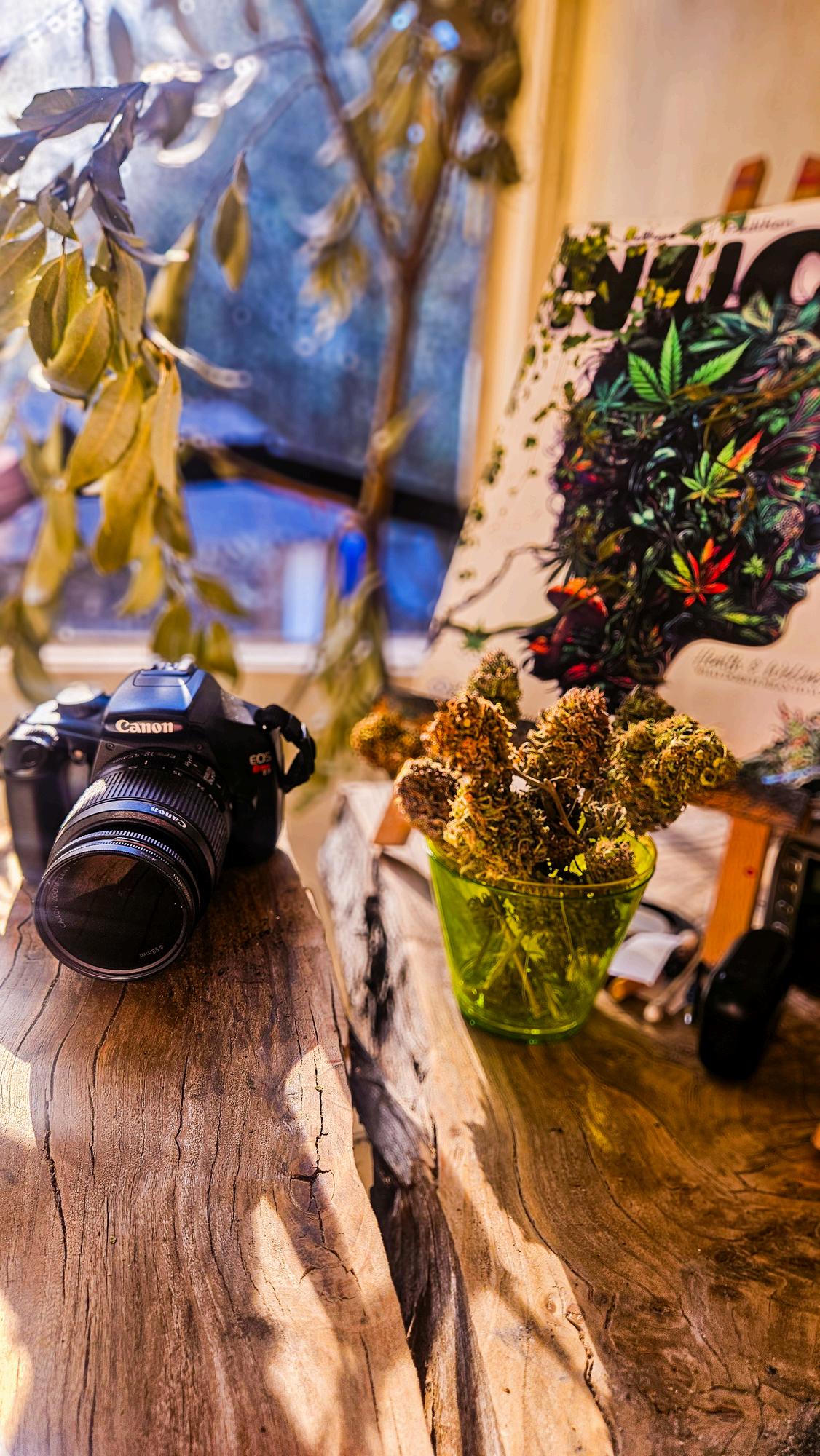
celebrate the women in your life today and everyday
By Bethany Niebauer
The American cannabis industry holds its own weight in terms of volume. In 2023 the estimated market size was worth approximately $33 billion. Compare that to the American pet food industry, which is valued at $35 billion, and the at-home coffee industry, (coffee purchased in grocery stores or convenience stores) which is valued at $12 billion.
As of 2025, 39 states have a medical marijuana program, and 24 states have fully legalized marijuana for adult consumption. Despite the slowdown experienced by many of the western states, the industry is growing overall.
Nevertheless, the industry exists in a precarious legal landscape. The Controlled Substances Act lists marijuana as a Schedule I substance. This group of drugs includes psilocybin and LSD and is reserved for drugs that have no accepted medical use and a high potential for abuse. (For comparison, cocaine and methamphetamine both fall under Schedule II )
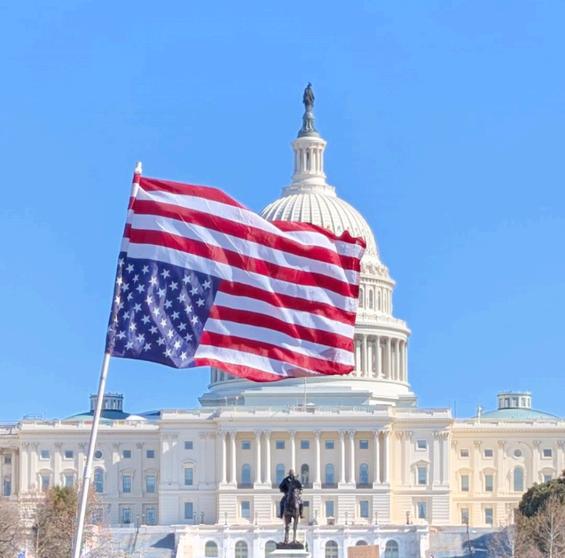
In other words, marijuana remains federally illegal, and this can be enforced by the Department of Justice through the Drug Enforcement Agency
The Cole Memorandum was created during the Obama Administration and successfully held back DEA raids for a time Authored by Deputy Attorney General James M. Cole, this document listed eight activities that would bring about federal intervention: selling to minors, funneling proceeds to gangs or
criminal organizations, and allowing marijuana to cross into states where it was still illegal were among the actions that would spur an unfriendly visit from the DEA. As long as marijuana operators did their utmost to avoid the actions spelled out in the Cole Memo, they were permitted to act without the threat of federal intervention.
In 2014 the first RohrbacherFarr Amendment made it through Congress and was signed into law by President Obama.
It prohibits the Department of Justice from using any funds allocated to them to interfere with cannabis operators who are adhering to state law. A version of this amendment made it through Congress up through 2021 when President Biden proposed a budget that incorporated the amendment into the body of the text. This is still in effect and is the primary shield for cannabis operators today.
Given the size of the cannabis industry and its uncertain legal footing, it’s fair to wonder how Donald Trump’s second administration will impact the industry as a whole. During his first administration, President Trump had two attorneys general. Jeff Sessions served as the first one, from February of 2017 through November of 2018, and was replaced in early 2019 by William Barr, who served through January of 2021
In addition to being deeply racist, Jeff Sessions was profoundly anti-cannabis. During his confirmation hearings, Mr Thomas H
Figures, an African-American prosecutor who had been a colleague of Mr. Sessions testified that Mr. Sessions said he thought the KKK was fine, “until I found out they smoked pot ” Mr Sessions admitted making this statement but claimed it was a joke. While speaking to the Senate in April of 2016, Sessions made the inflammatory suggestion that “good people don’t smoke marijuana.”
William Barr was more eloquent than Mr. Sessions, but his thoughts were largely similar. He believed that marijuana was a dangerous substance and that legalization had been a mistake. That said, he testified during a Senate Appropriations subcommittee hearing that he favored a more lenient, albeit federalist approach to cannabis. A federalist approach is one that generally respects the rights of the states to make and enforce their own laws. From that statement we can surmise that while Mr. Barr disapproved of the industry, dismantling it wasn’t a priority.
Neither of Trump’s attorneys general were a friend to the cannabis industry, but they had little impact on it.
Jeff Sessions rescinded the Cole Memo about a year into his term, but by that point, the industry was already well protected by an iteration of the Rohrbacher-Farr Amendment. In fact, between 2016 and 2020, 10 states fully legalized marijuana and legal sales increased by about $9.5 billion. They may have looked down their noses at us, but they weren’t doing much more than that.





Jamie Pearson founded and leads The New Holland Group (NHG), a global consulting firm serving clients with international business development; strategy, branding, marketing, capital raising, leadership, cross-border IP protection, and celebrity partnerships.
Jamie Pearson is an award-winning keynote speaker, writer, accredited investor, board member, and highly respected leader. Jamie’s “in the trenches” operational success and deep, global relationships led her to win the 2024 MJ BizCon Women in Leadership award, to be coined “Wonder Woman” in the 2023.
Jamie has been a prosperous investor in global real estate on three continents. She studied German at the University of Wuppertal and has split her time between the two countries for over 25 years. She is generous with her time and knowledge and currently sits on the advisory boards of Hello Again, Dope Drinks, The Cannabis Summit, Marley One, Unlock Healthcare, and the Global Cannabis Network Collective (GCNC).
FNM: When and how were you first introduced to cannabis?
Jamie: My dad has been a home grower for my entire life My parents tell the story that I tried to take “daddy’s pipe” to show and tell in Kindergarten. I was introduced to the cannabis industry by my cousin, DJ Muggs from Soul Assassins and Cypress Hill, when he asked me to help the band find a quality deal.
FNM: What was the inspiration to create the New Holland Group?
Jamie: After I left Bhang, I had planned to go back to investing in real estate full time. An Israeli company hired me to do some strategic consulting and I needed a place to deposit the payment. I’m grateful for that opportunity because it led me to where I am now.
FNM: If you can change one thing about the cannabis industry, what would it be?
Jamie: The complete federal legalization of adult-use cannabis. The patchwork of state laws creates unnecessary barriers, from banking restrictions to interstate commerce limitations, stifling growth and innovation, not to mention the millions of dollars and jobs the US loses every day because our lawmakers have not kept up with day-to-day realities. Legalization would not only legitimize the industry but also provide lucrative harm reduction through fair access, consumer safety, and economic opportunity
national scale.
FNM: As a founder in the cannabis industry, what has been the biggest challenge you've faced.
Jamie: In any industry where the rules are written by those who did not have to fight to be included, the greatest challenge is not only breaking through barriers but opening the door for others. The cannabis industry, despite its reputation for progressivism, is no different. It is a sector built on resilience and reinvention, yet often constrained by outdated biases and systemic obstacles
I have encountered the deeply ingrained skepticism that too often greets women who dare to lead with confidence Access to capital remains a primary hurdle not just for me, but for women across the industry. Investors, disproportionately male, often view female-led businesses as riskier, despite ample evidence to the contrary. This is not a matter of competence, but of perception. As Madeleine Albright famously said, ‘There is a special place in hell for women who don’t help other women.’ I have always built strong networks rather than waiting for invitations. The “female mafia” has been and continues to be my most powerful and effective support system.
FNM: Where can people find you to learn more about your business?
Jamie: www.new-holland.group (SOON! - website almost done) JBoogie.22 (insta)
JamieLPearsonNHG on LinkedIn
























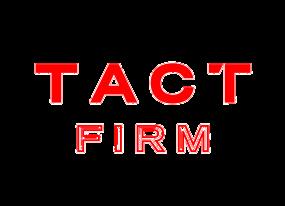



FNM: When and how were you first introduced to cannabis?
Carly: I was first introduced to cannabis through my older siblings during my early teen years. I prided myself on being the “cool little sister,” which meant I was exposed to things a bit earlier than most kids. Back then, I was active in sports, so consuming cannabis was a big no-no, but that didn’t stop me from being curious. I tried it a couple of times at parties, but the experience felt overwhelming, and I knew I wanted to try it in a more relaxed, intimate setting.
One day, my friends and I loaded into my friend’s blue slug bug and drove out to “Stone Road,” a local spot where kids would meet up after school, out of sight from teachers and parents. With Ludacris' Blueberry Yum Yum playing on repeat, we passed a joint around in a circle, it felt like a true “That 70s Show” moment. That day, we formed what we called our “secret stoner club.”
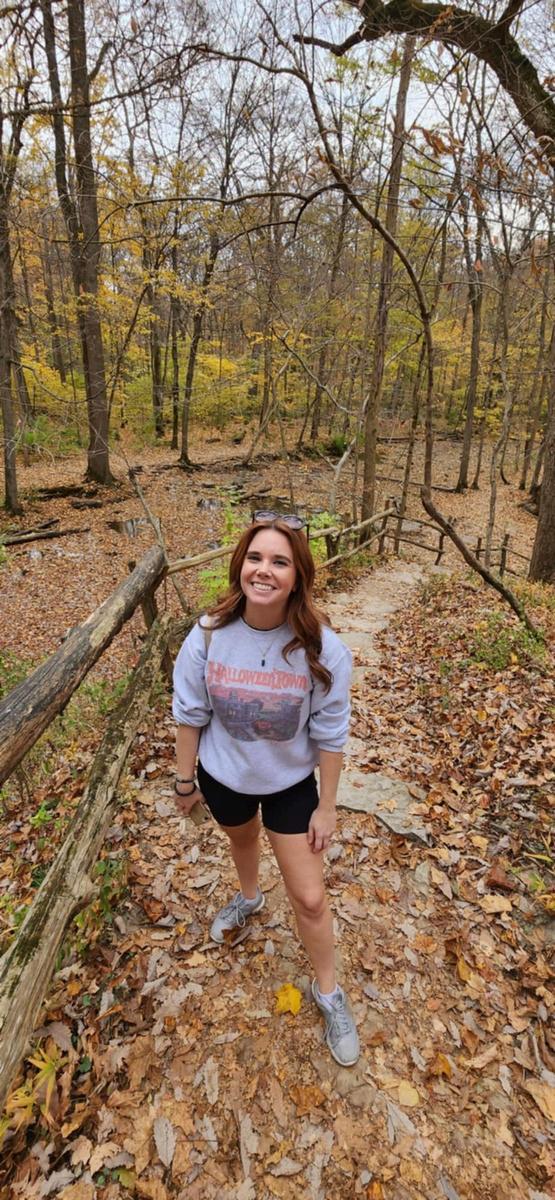
From then on, we’d spend hours together out on the backroads of the countryside, laughing, and forgetting all the problems life threw at us, whether it was a parent’s divorce, an argument with a friend, or heartbreak over a first love.
FNM: What do you think will happen with cannabis legalization in the next 4 years?
Carly: In the next four years, I believe we’ll see progress toward federal cannabis legalization in the U.S. As more states legalize and the industry grows, there’s increasing pressure to address outdated federal policies that limit research, banking, and interstate commerce. That said, I think the process will be gradual, with some states and industries adapting faster than others. Alongside legalization, I hope to see more efforts toward social equity and ensuring that those disproportionately affected by past cannabis laws have opportunities to thrive in this space.
FNM: If you could change one thing in the cannabis industry what would it be?
Carly: If I could change one thing in the cannabis industry, it would be the lingering stigma that still surrounds cannabis use. Despite growing legalization and acceptance, many people still associate cannabis with outdated stereotypes that don’t reflect its incredible potential for wellness and personal growth.
I’d love to see a world where cannabis use is as normalized as any other wellness tool and where people feel empowered to explore it without fear of judgment or misinformation.
“I believe education is the key to breaking down barriers. If we can provide people with the right information, based on science and real experiences, we can help shift the conversation to one of understanding and acceptance. This would not only benefit consumers but also create opportunities for further research, innovation, and accessibility within the industry.”
FNM: How has cannabis positively impacted your life?
Carly: Cannabis has had such a positive impact on my life, both personally and professionally. I began using cannabis regularly in college after struggling with anxiety and depression. I had been prescribed several medications, but they left me feeling numb and disconnected. Fed up with how they made me feel, I turned to cannabis. This time, it was different, I used it intentionally for my mental health and wellness.
Cannabis became a tool that helped me feel like myself again, giving me the clarity and balance I needed to move forward. That choice changed the course of my life, opening me up to new opportunities, creative energy, and personal growth.
Today, I’m fortunate to work in the cannabis industry, where I can share my journey and help others discover the potential benefits of this incredible plant. It’s empowering to see how purposeful cannabis use can transform lives, just as it did mine
“I’m the Manager of the weird plant store EcoGro in Tucson, Arizona. We specialize in organic gardening, tropical plants, weird cacti and succulents, and of e t n nn !

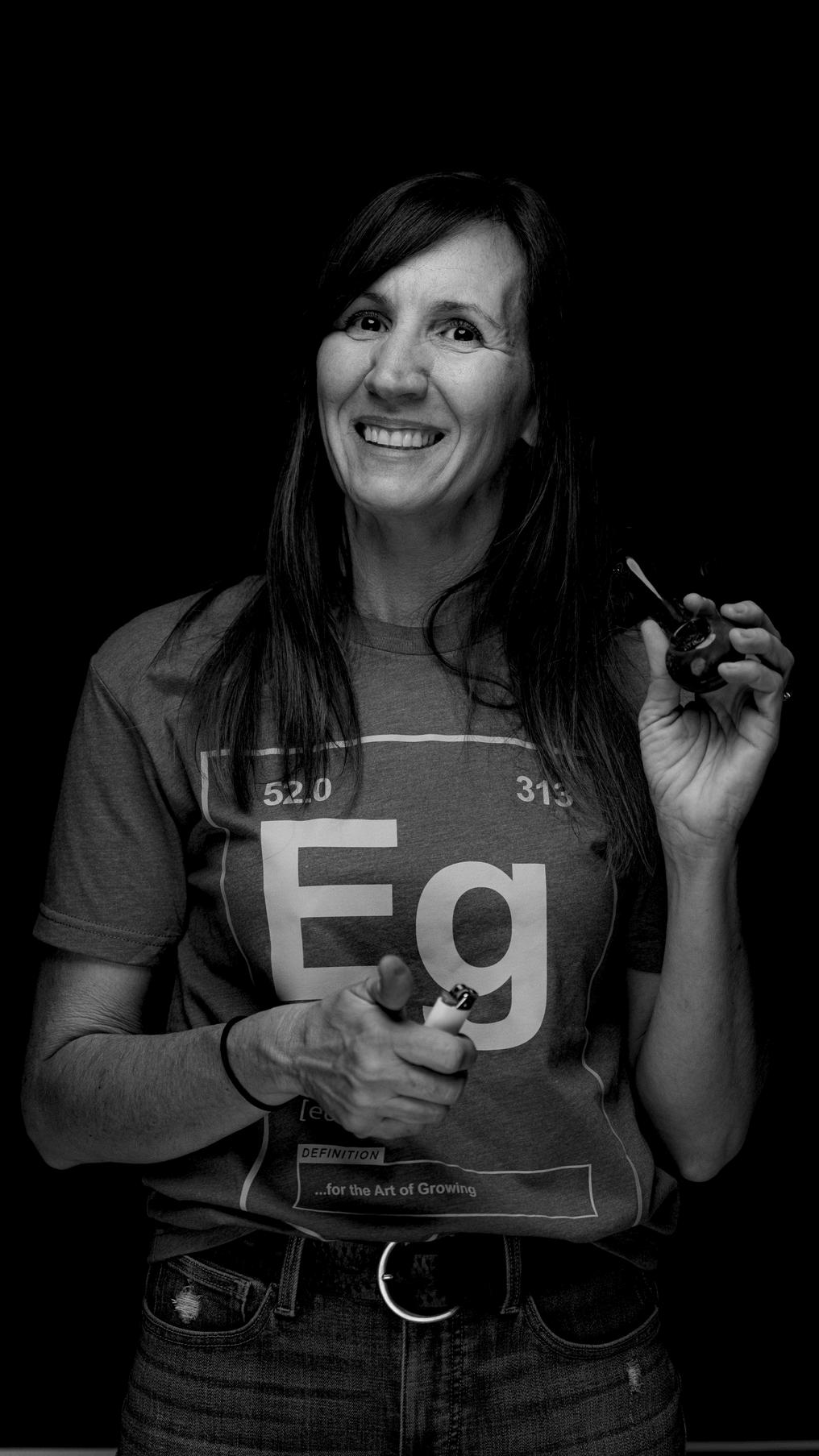



By Kenya Alexander

The Texas Hemp Summit is more than just another industry conference it’s a frontrow seat to a rapidly evolving market that’s quietly making waves in one of the country’s most unexpected places Texas may not be the first state that comes to mind when you think about cannabis, but with a thriving hemp market, an engaged community of entrepreneurs, and a growing push for smarter regulations, the Lone Star State is proving to be a major player in the future of hemp
This year’s summit brought together industry leaders, policymakers, and innovators to discuss not just where the industry is now, but where it’s headed From sustainable farming and cutting-edge product development to the legal landscape and business strategies, every discussion highlighted why Texas deserves more attention in the national conversation. The event wasn’t just about learning it was about collaboration, advocacy, and the opportunity to help shape the future of hemp in the state.
But as I prepared to make the drive at 4 a.m., a knot of anxiety began to form in my stomach Dallas has taken a progressive stance on cannabis, voting to decriminalize the plant in 2024, a significant step in normalizing its presence in the state. But as I made my way to the Texas Hemp Summit, my route took me through small towns where the views on cannabis were a mystery to me The contrast was stark, highlighting the ongoing tension between progressive urban policies and the deeply rooted traditionalism in rural Texas.
Texas is still in the patchwork phase of decriminalizing cannabis, with policies varying wildly from city to city. For every Austin or Dallas making strides, there are towns where cannabis culture is less visible or perhaps even nonexistent. That uncertainty, combined with the natural unease of a long drive through unfamiliar territory, was enough to keep me on edge.
Still, I reminded myself why I was doing this. This wasn’t just a drive through small towns; it was a journey into the heart of a story I was eager to uncover With a pack of sunflower seeds to keep my hands busy and my eyes open, I hit the road, hopeful and curious about what awaited me at the Texas Hemp Summit.

Arrival: A Surreal Welcome to the Texas Hemp Summit
I arrived on the Texas A&M campus for the first time ever, and it immediately struck me as the perfect venue unexpected, but fitting. As the largest university in Texas, Texas A&M carries a reputation for academic excellence and deep-rooted agricultural expertise Talking about weed on a college campus with the number one Biological and Agricultural Engineering program in the country? It was almost too much to believe.
The summit was hosted at the AgriLife Center, a space as impressive as the university’s reputation. The building’s floor-to-ceiling windows welcomed streams of natural light, filling the room with an almost electric energy, even at 8 a.m. on a Saturday. The atmosphere was lively yet professional, with attendees buzzing about in anticipation of the day’s sessions
After checking in, I took a moment to soak in the scene, exchanging greetings with a few familiar faces. One of my first stops was to thank Shayda Torabi Howell, who had graciously given me the opportunity to attend. Shayda is a powerhouse in the Texas hemp space: a vocal advocate, the CEO and Co-Founder of Restart CBD a dispensary based in Austin and the President of the Texas Hemp Coalition, the advocacy group hosting the summit
Her passion for the industry is undeniable, and it shows not just in her work, but in the energy she brings to events like this This wasn’t just a networking opportunity—it was a celebration of how far the hemp industry in Texas had come, and Shayda had played no small role in that progress.
After a heartfelt welcome speech that set the tone for the day, the panels kicked off and wow, they delivered. One of my favorite things about the Texas Hemp Summit was its single-stage format No running between rooms or choosing between overlapping sessions every attendee was in the same room, hearing the same conversations, and soaking up the same insights It created a uniquely intimate vibe, yet the diversity of perspectives in the room made every moment feel expansive and enriching
Laserphaco Probe for cataract surgery
Dr. Patricia Bath invented the Laserphaco Probe in 1986. Her groundbreaking invention revolutionized cataract surgery, making the procedure safer and more effective by using laser technology to remove cataracts and restore vision.. She became the first African American woman to receive a patent for a medical invention, helping millions of people regain their sight.
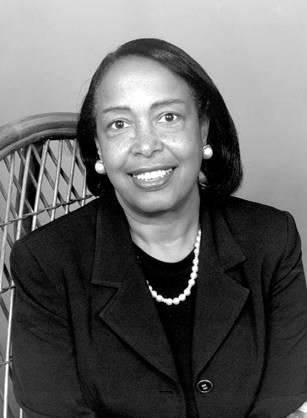
Women embody strength, resilience, and beauty that shines through every challenge they conquer.
In 1966, Marie Van Brittan Brown invented the first home security system, which included a video surveillance system and remote-controlled doors. Her invention laid the foundation for modern security systems used in homes and businesses today, providing a sense of safety and protection for countless people.

first concept sketch of Brown’s home security system.



Podcasts we listen to and support in 2025




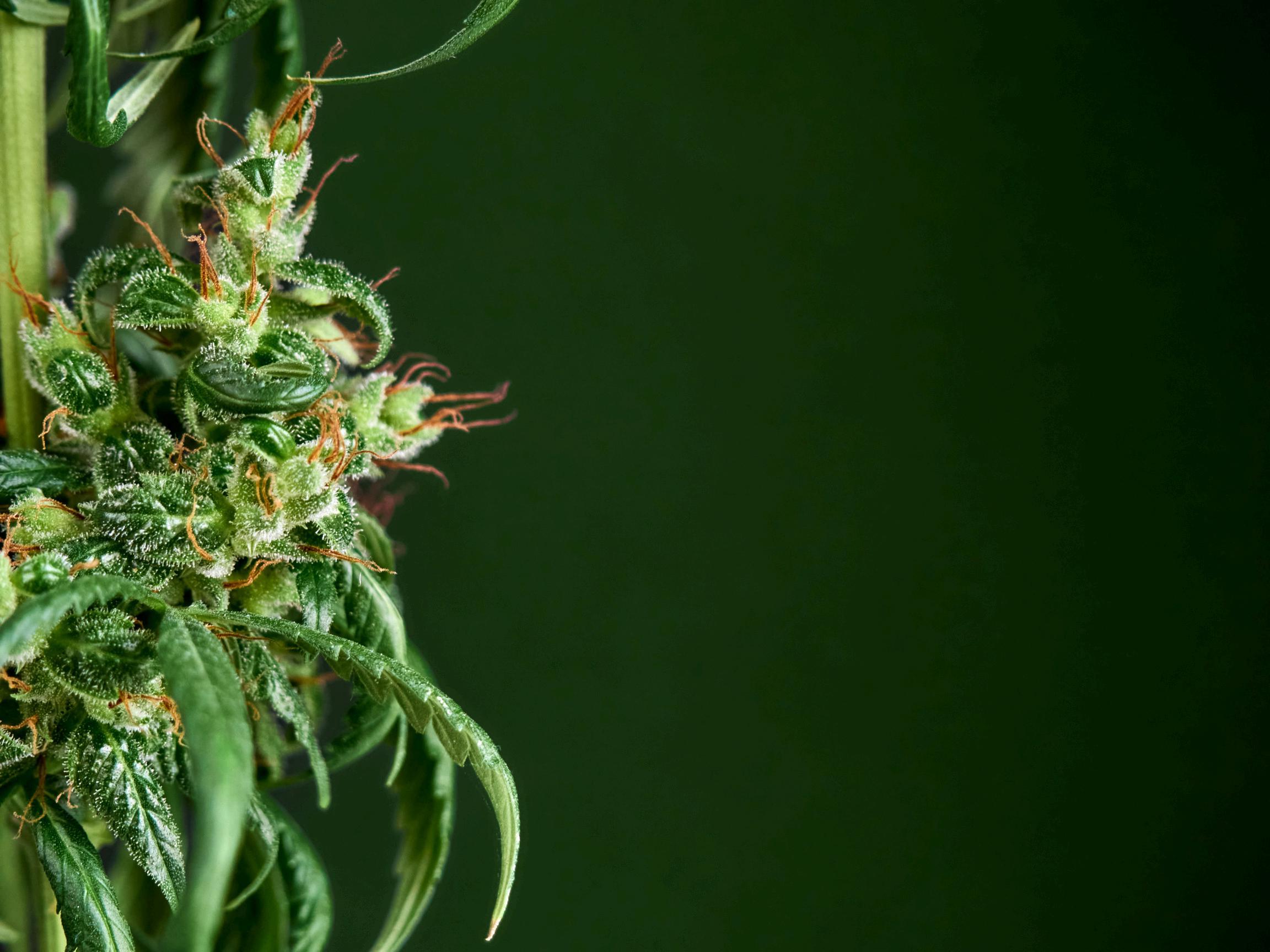

Hosted by Kentucky NORML, The Kentucky Cannabis Conference is back for its 2nd year, highlighting the emerging cannabis industry, expert presentations, and thought leaders conversations of the intersections of medical cannabis and regulated hemp in Kentucky and throughout the South.
Thursday, March 13, 2025
Welcome Reception: 6 – 9 PM
Friday, March 14, 2025
B2B Only Day
Conference/Expo: 10 AM – 4 PM
Green Gala: 6 PM – 9 PM
Saturday, March 15, 2025
B2B and B2C (Expo) Conference/Expo: 10 AM – 4 PM
















“I create NugBuds! These little guys are my own hand-knit stuffed marijuana nuggets! They're my own original designs and patterns that i make in different sizes, I even make them as keychains and hats. Nugbuds make people smile, and always amaze people with just how soft and cuddly they are!”



FNM: When and how were you first introduced to cannabis?
Jessica: After believing the stigmas around cannabis my whole life, it took a lot of convincing from my husband for me to try it medically to help my epilepsy and my ongoing pain from my neurological condition, idiopathic intracranial hypertension (IIH). Because of my conditions, I was having seizures multiple times a week, was in immense and constant pain, I was bedridden, and I was miserable. With my husbands encouragement I finally decided to try cannabis, and after several appointments with my doctors I was given my medical card. I went to the dispensary knowing nothing and left with what I would soon discover to be a live changing medication.
FNM: How can people get a hold of your nug bud creations?
Jessica: The best way to get one of my NugBuds is to reach out to me through Instagram @thenugbudlady or to send me an email at TheNugbudLady@gmail.com! I have over 37 different colors to choose from in 9 different types and love doing custom designs for people too!
FNM: How has cannabis positively impacted your life?
Jessica: Cannabis genuinely saved my life! When I was 32, I was having roughly 3 to 4 seizures a week, and, because of my IIH, I was on fentanyl, percocet and vicodin to try to help my extreme pain, but was still bedridden and miserable. Now, thanks to cannabis, I'm no longer on any pain medications and haven’t had a seizure in over a year! Most importantly, it has helped me feel like a person again. Beyond that, it has also given me the opportunity to start this amazing business where I get to meet so many great people in the cannabis community and share the difference it has made in my life.

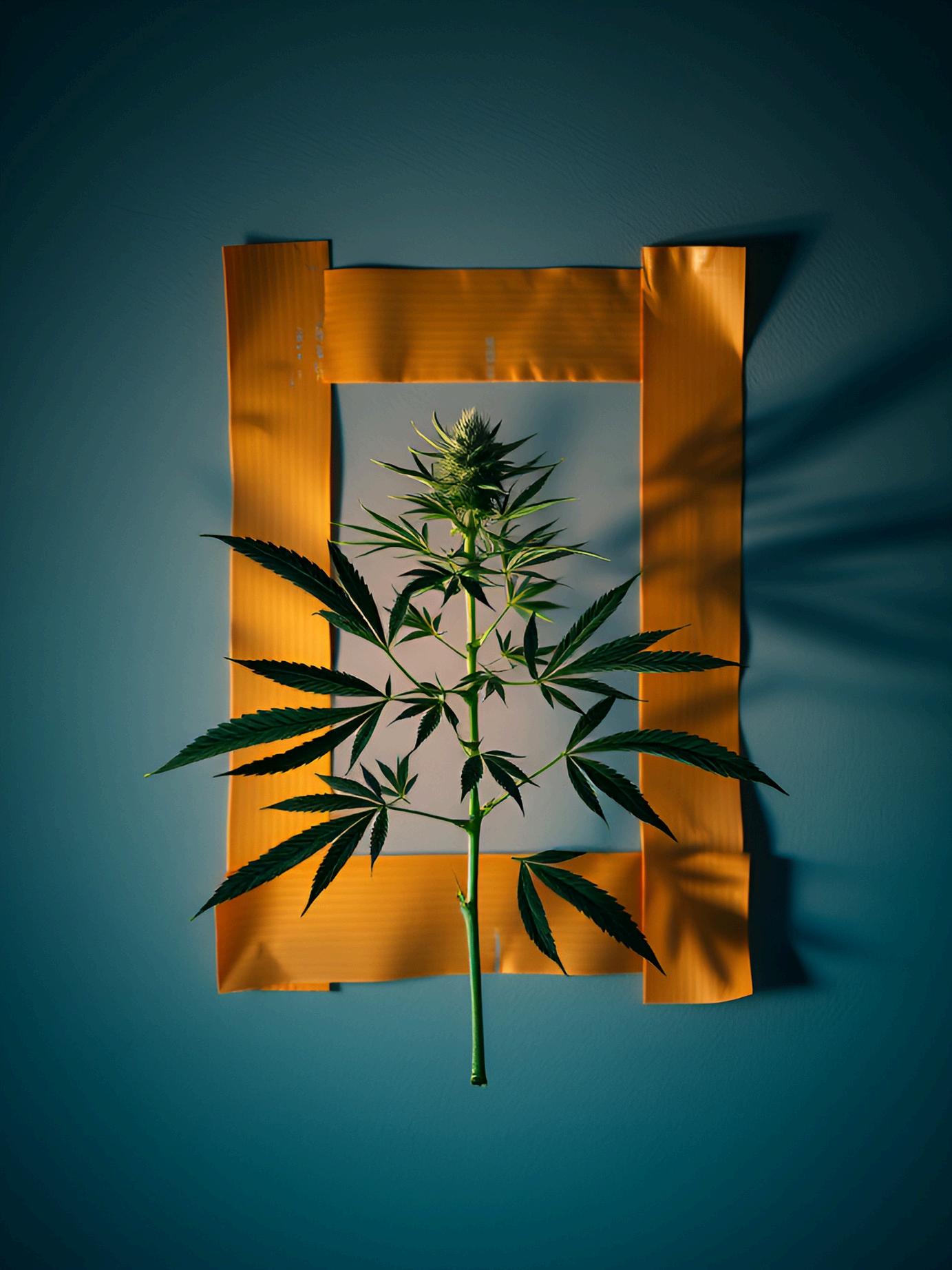


$6,200,000





Thank you to all of the brands, businesses, companies, organizations, and individuals who have donated and advertised with us for the Prisoners Edition!
Sorting Robotics
Grove Bags
Andrea Steel
The Banks Law Firm
Tact Firm LLC
OCHBS
TAC CPAs LLC
HUB
Alibi Cannabis PufCreativ
High End Search
Pisgah Peaks Ventures
Wizard Accounting & Consulting LLC
Effective Cannabis Newsletter
Eternum Analytics LLC
Compassionate Alternative Care, FL
GreenLight Energy Conservation
Rasta Rootz LLC
The Toke Agency
EntheaCare
Green Lane Communication, Inc
GROWISE CPAs
Jeffrey Hoffman & Associates PLLC
Cannabiz Conversation Podcast
Simply J Bookkeeping & Consulting
Strange Rootz dialed.®
GreenLeafHR/40Tons
Flourish Software
New Leaf EA
Luna Stower
Airo Brands
ACS Laboratory
Stir Crazy Seeds LLC
Sun Provisions
Toke POS
BayMedica
Alpine Seed Group
420 Print Media, LLC
Gaines 4 The Culture
Dime Industries
Erva Inc
Prophet LLC
Octane
REEFORM c/o Glass House
Nasha Hash
Tree of Life PR
Love Gem Inc
Care Waialua Farms
Yard to Fable Enterprises LLC
On Point Power
Bonsai Buds
Embarc
Revelry
Rectitude Partners
New Holland Group Inc
Purpose Driven Solutions Ltd
Matt Gunter
Xtra Laboratories
RAW
Firefly Growth Solutions LLC
ESBE LLC
